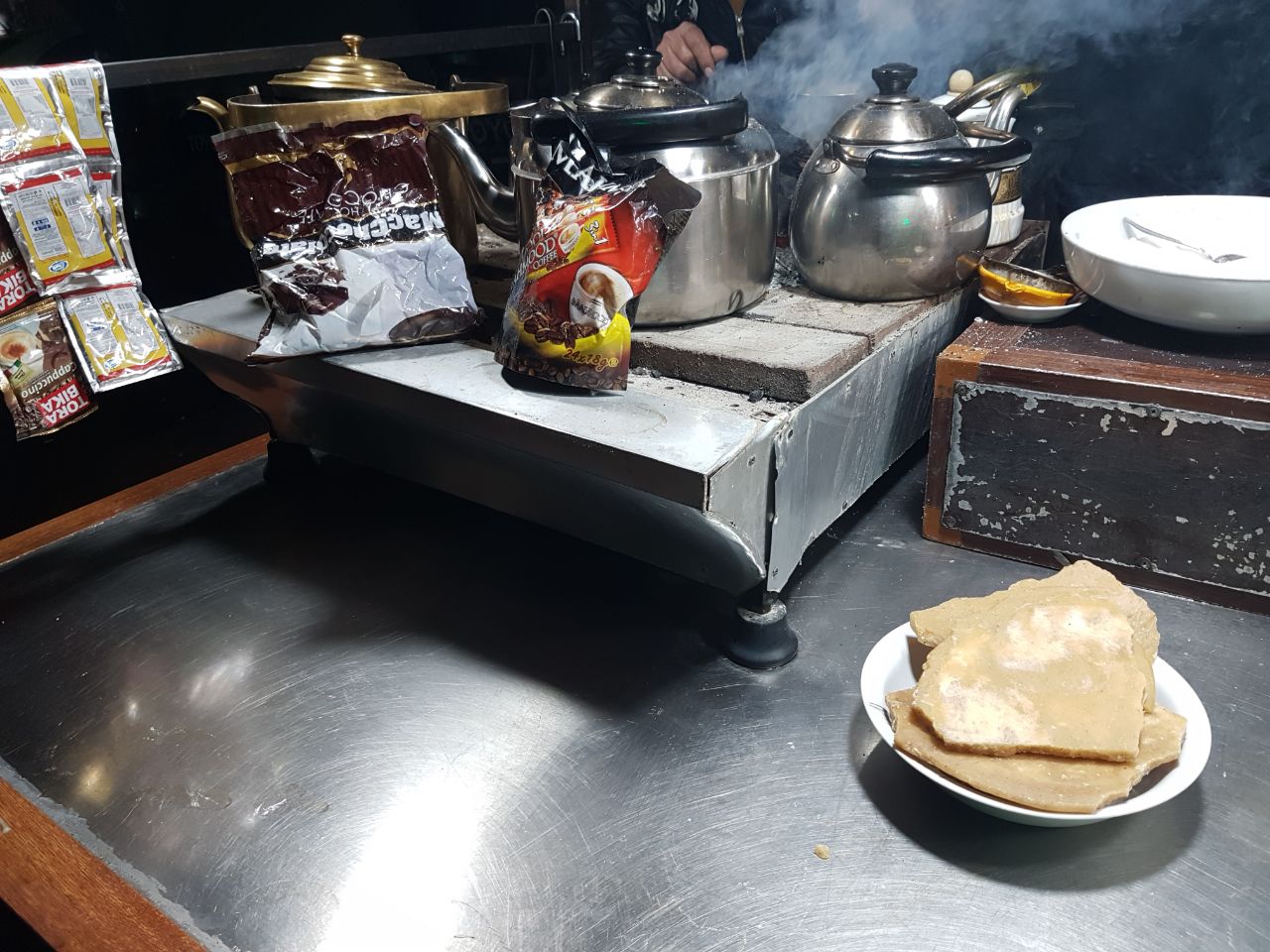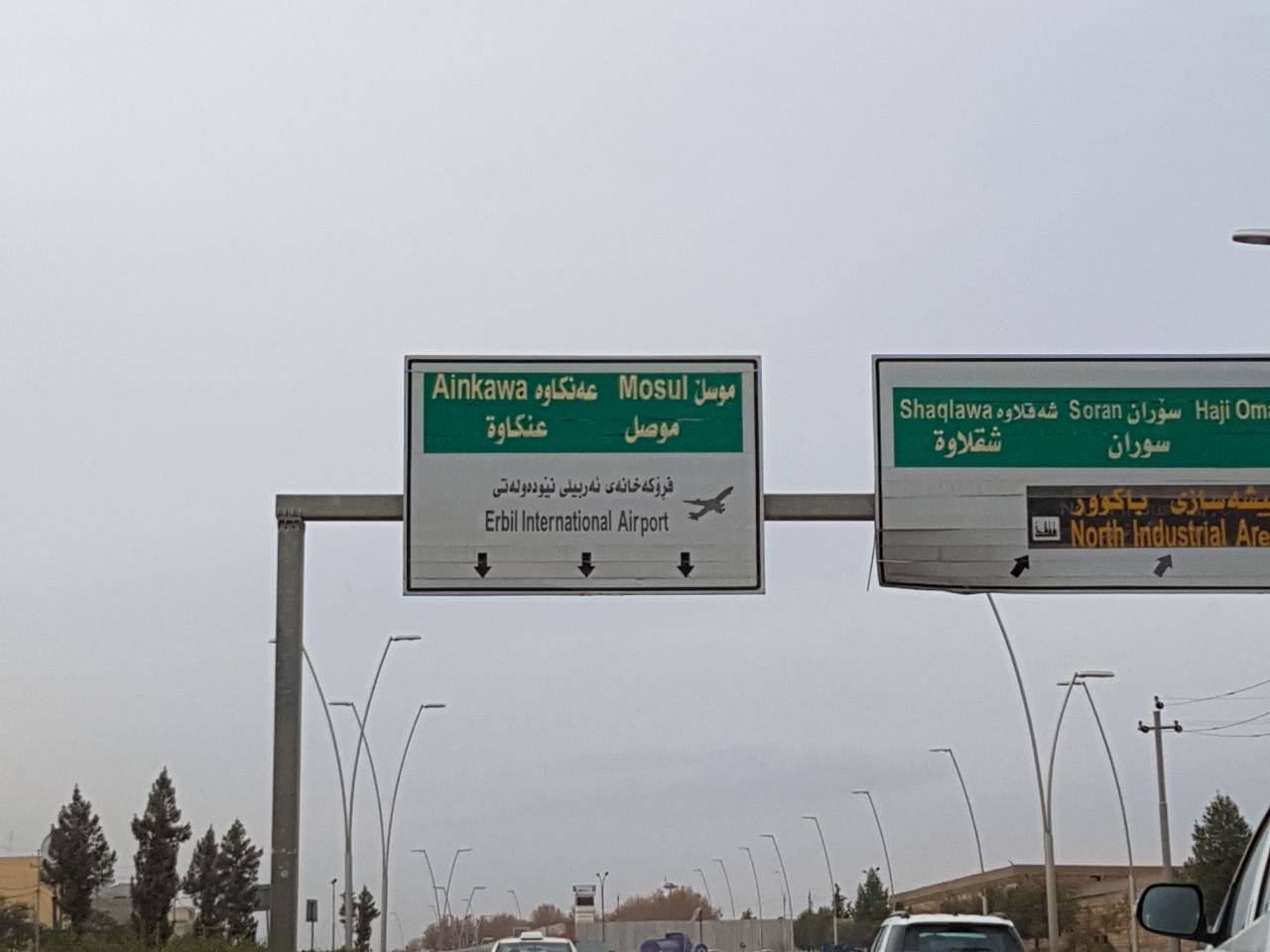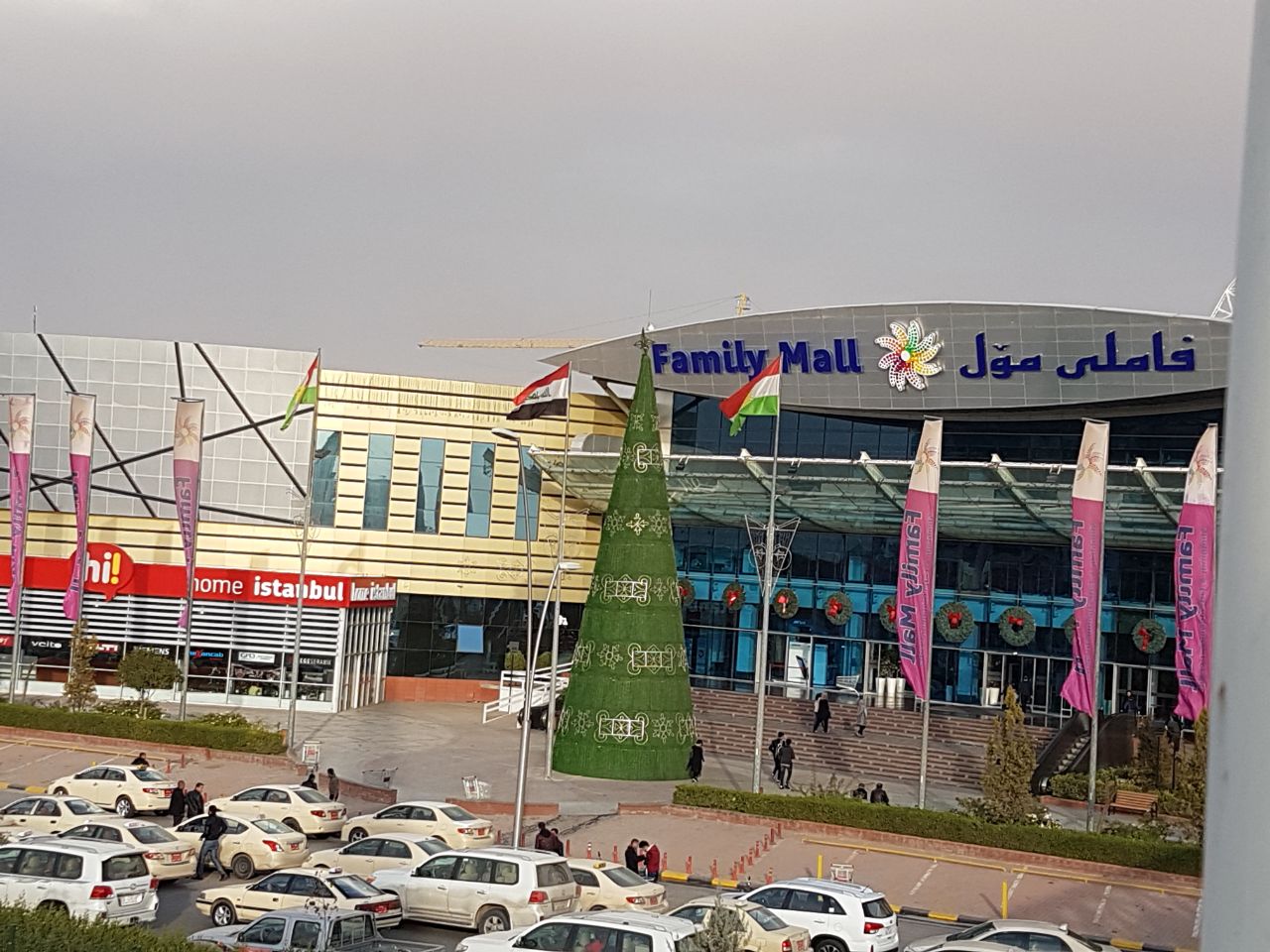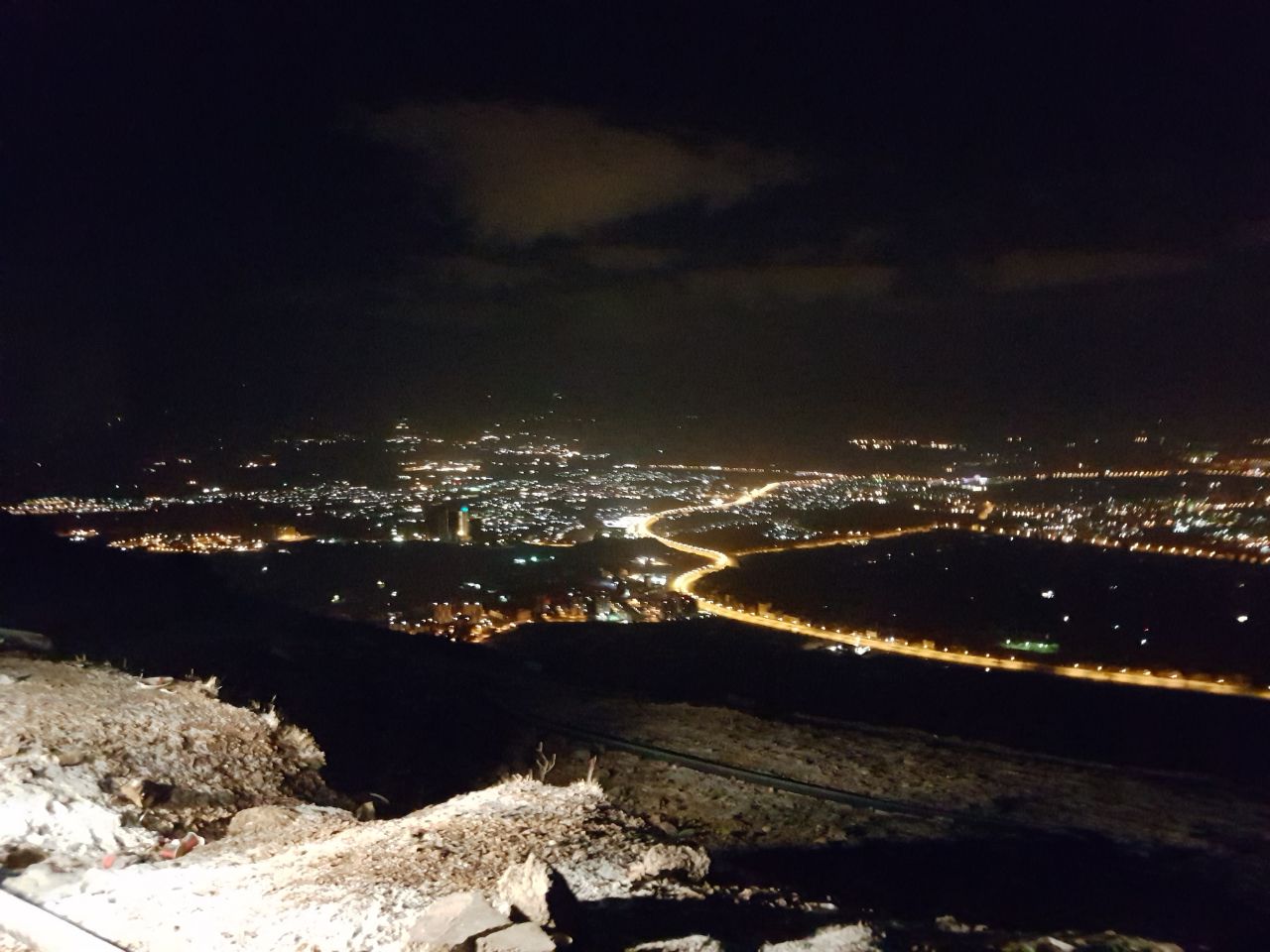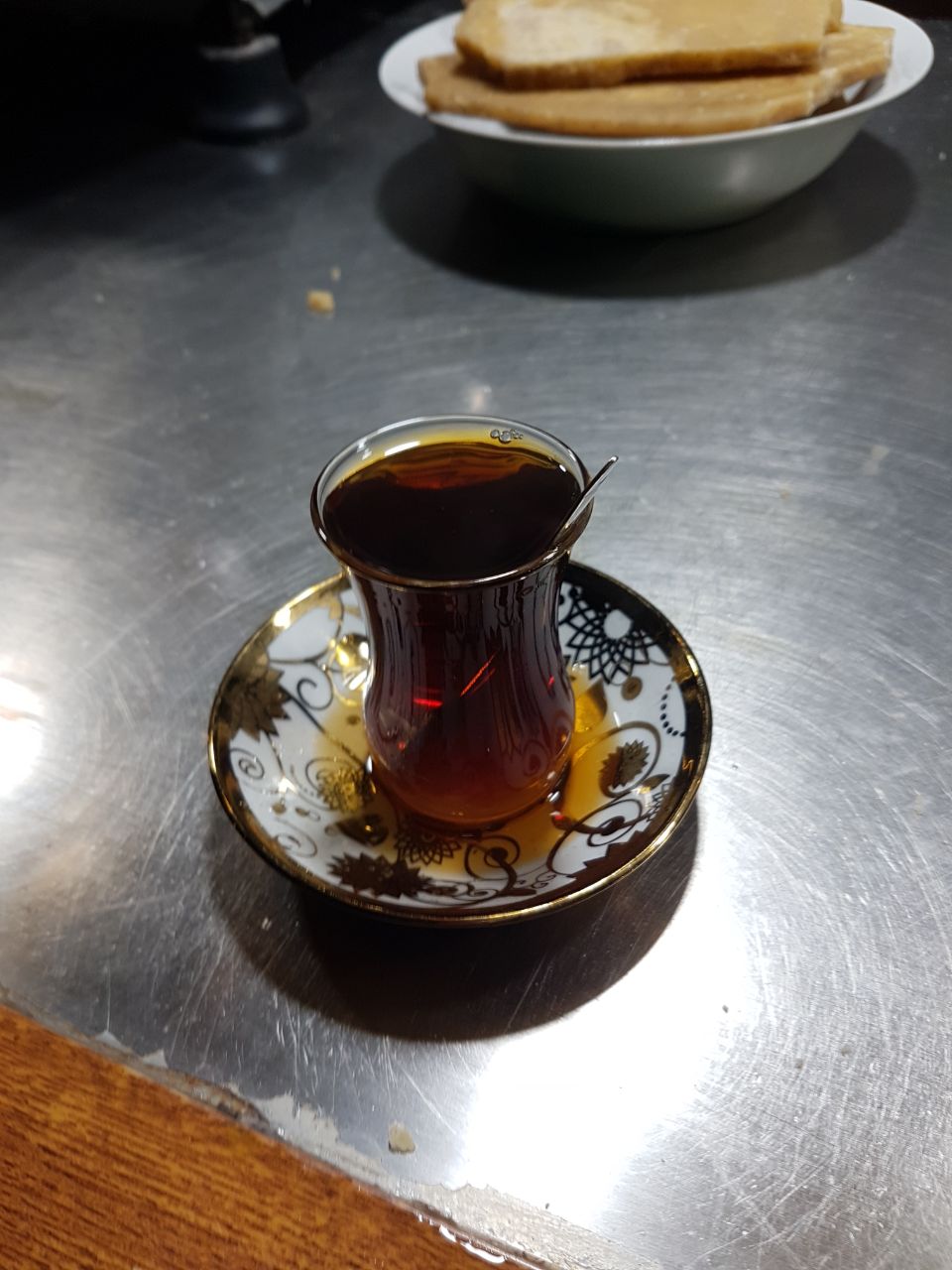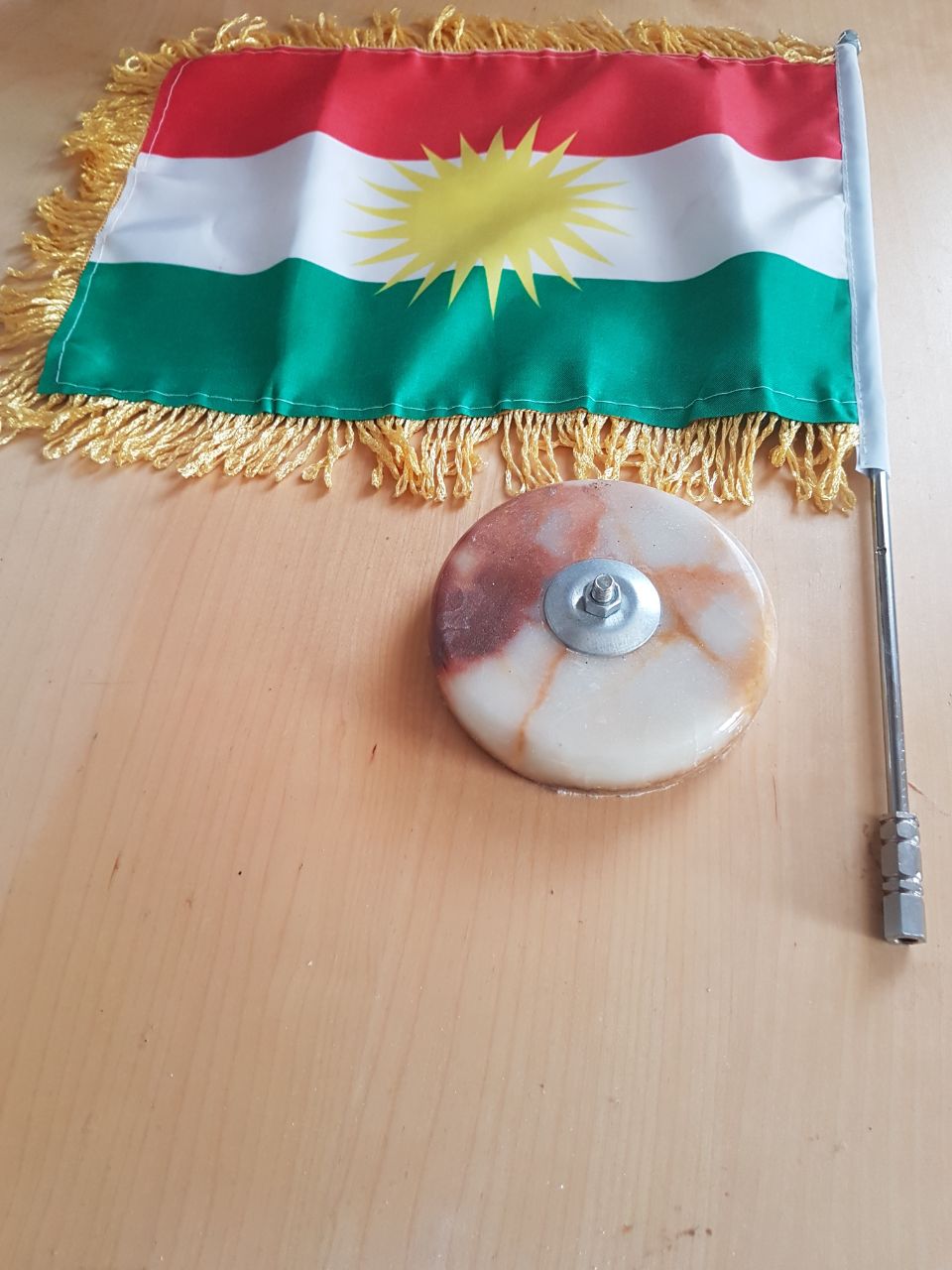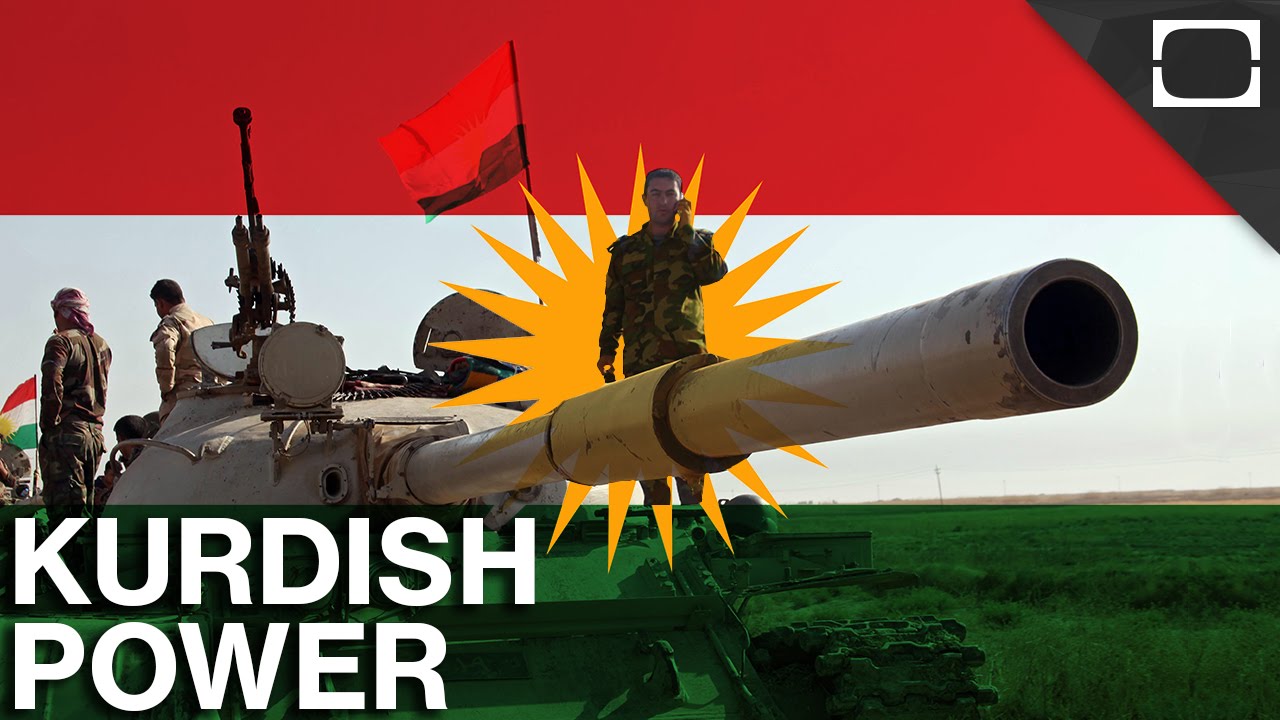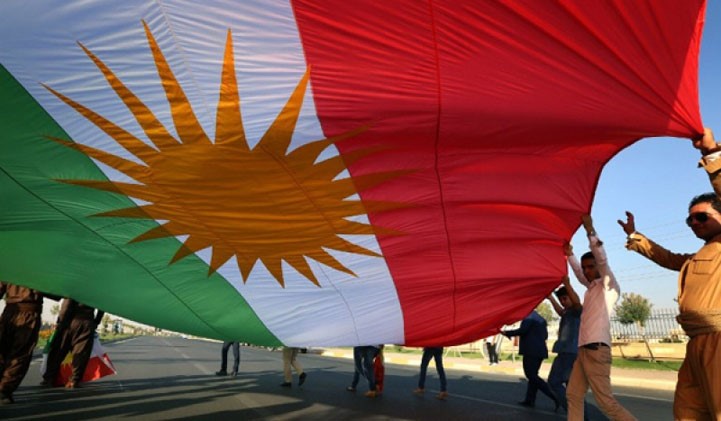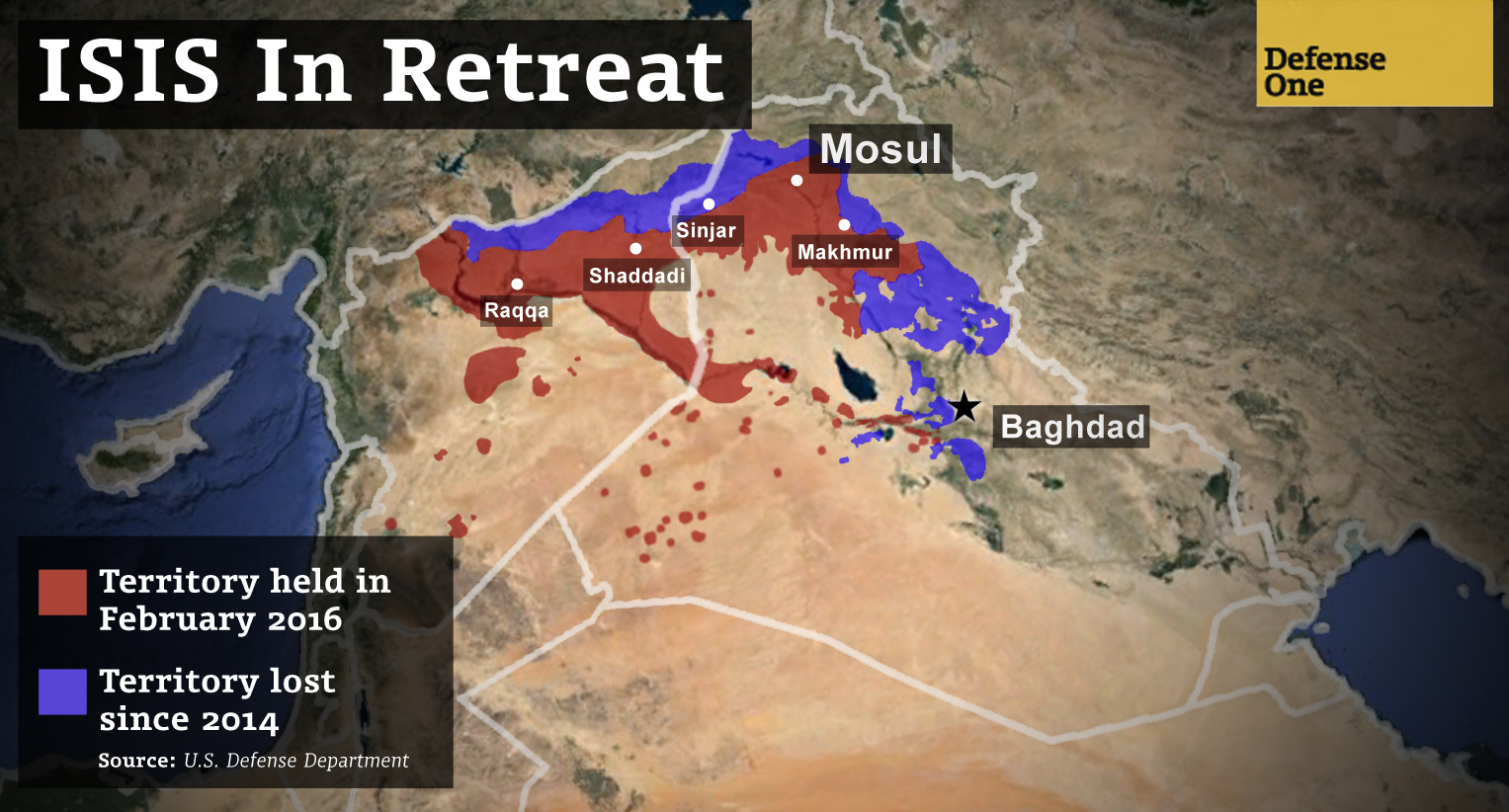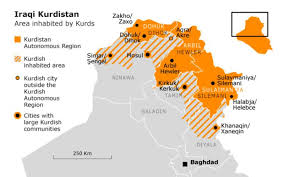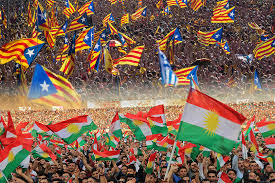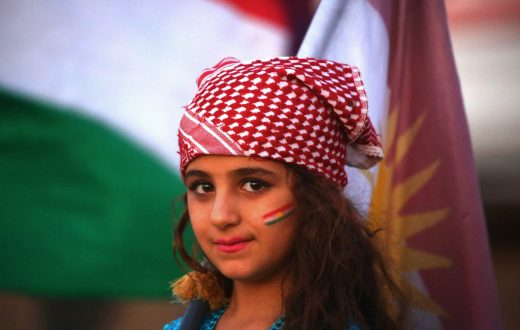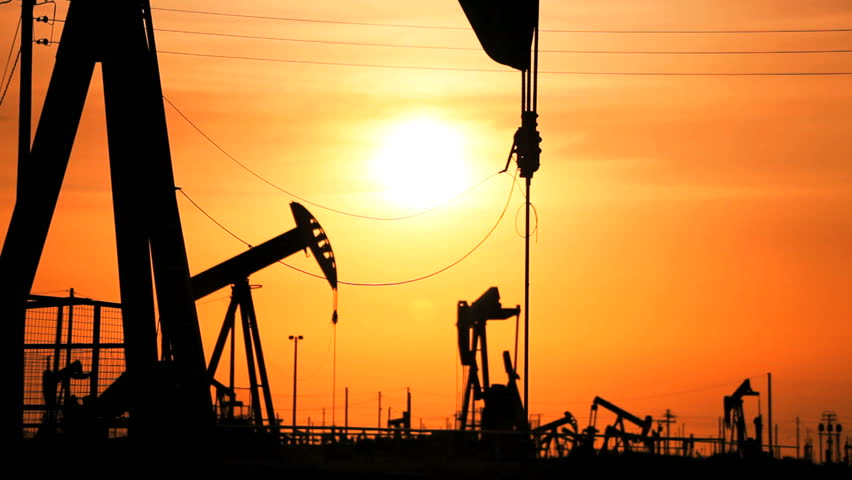Kurdistan, ‘The Land of the Kurds,’ internationally recognized as an area with territory in four different countries – Turkey, Iran, Syria and Iraq. Even though its territory technically lies within the borders of four other states, the Kurdish nation has fought their respective governments in order to form an independent state throughout history. Plagued by violent outbreaks and even internal political strife, the result is four parts of Kurdistan moving in various different directions, although the fate of Rojava, Syrian Kurdistan, is still not entirely known. One area of Kurdistan stands out from the rest however, the autonomous Kurdish region in northern Iraq.
The Kurdish Regional Government (KRG) is a functioning state apparatus based on Western democratic ideology, tolerance for minorities within its borders and freedom for its citizens
I am extremely reluctant to put Kurdistan in the same category as most of the other unrecognized states in the world and especially under the title of ‘Ghost States.’ The Kurdish Regional Government (KRG) is a functioning state apparatus based on Western democratic ideology, tolerance for minorities within its borders and freedom for its citizens.
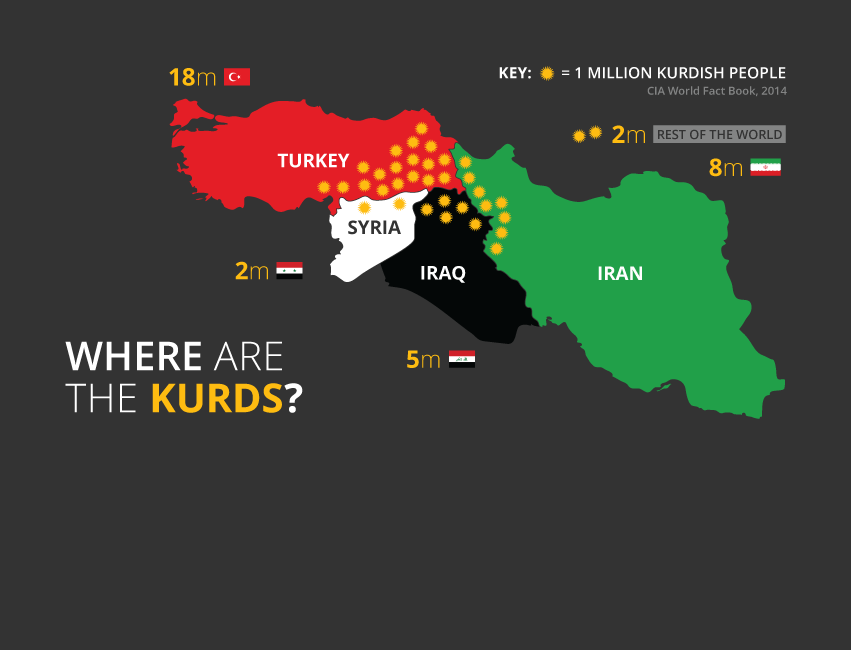
The country is equipped with its own flag, government, language, culture and military and the autonomous region is considered the safest and most prosperous region of Iraq.
Under the control of the Kurdish Regional Government with its capital in Erbil, the autonomous region is defended on all of its borders (including those with the rest of Iraq) by the Kurdish army, the Peshmerga.
As the Peshmerga is arguably a stronger military force than the federal Iraqi military, it has total control over the Kurdish region with no outside intervention. Not only has it been protecting its own borders, it has also aided Iraqi forces in regaining lost territory from the ‘Islamic State.’
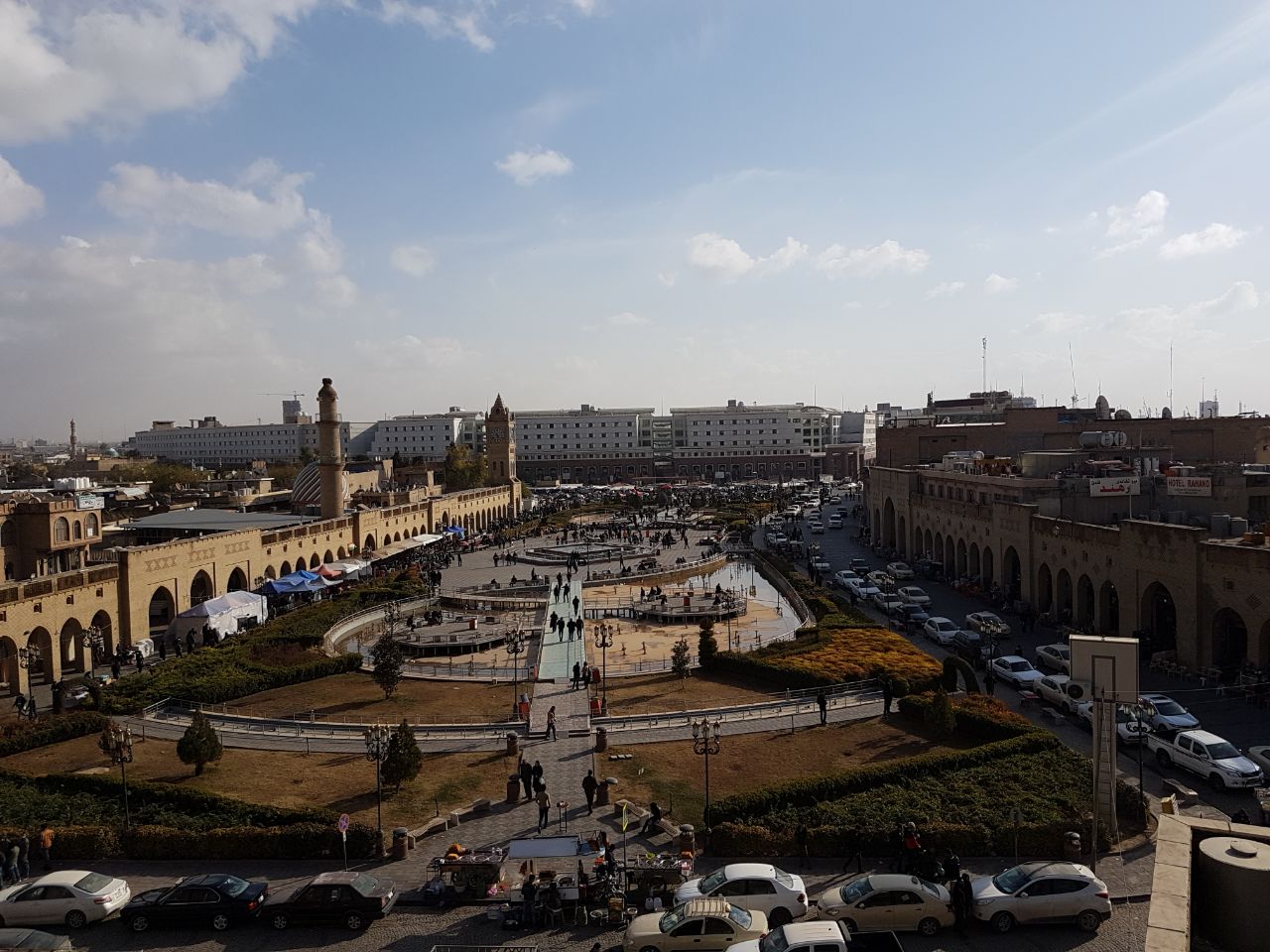
Credit : Sam Gould/ Young Diplomats
Peace, democracy, tolerance, respect for human rights, and freedoms.
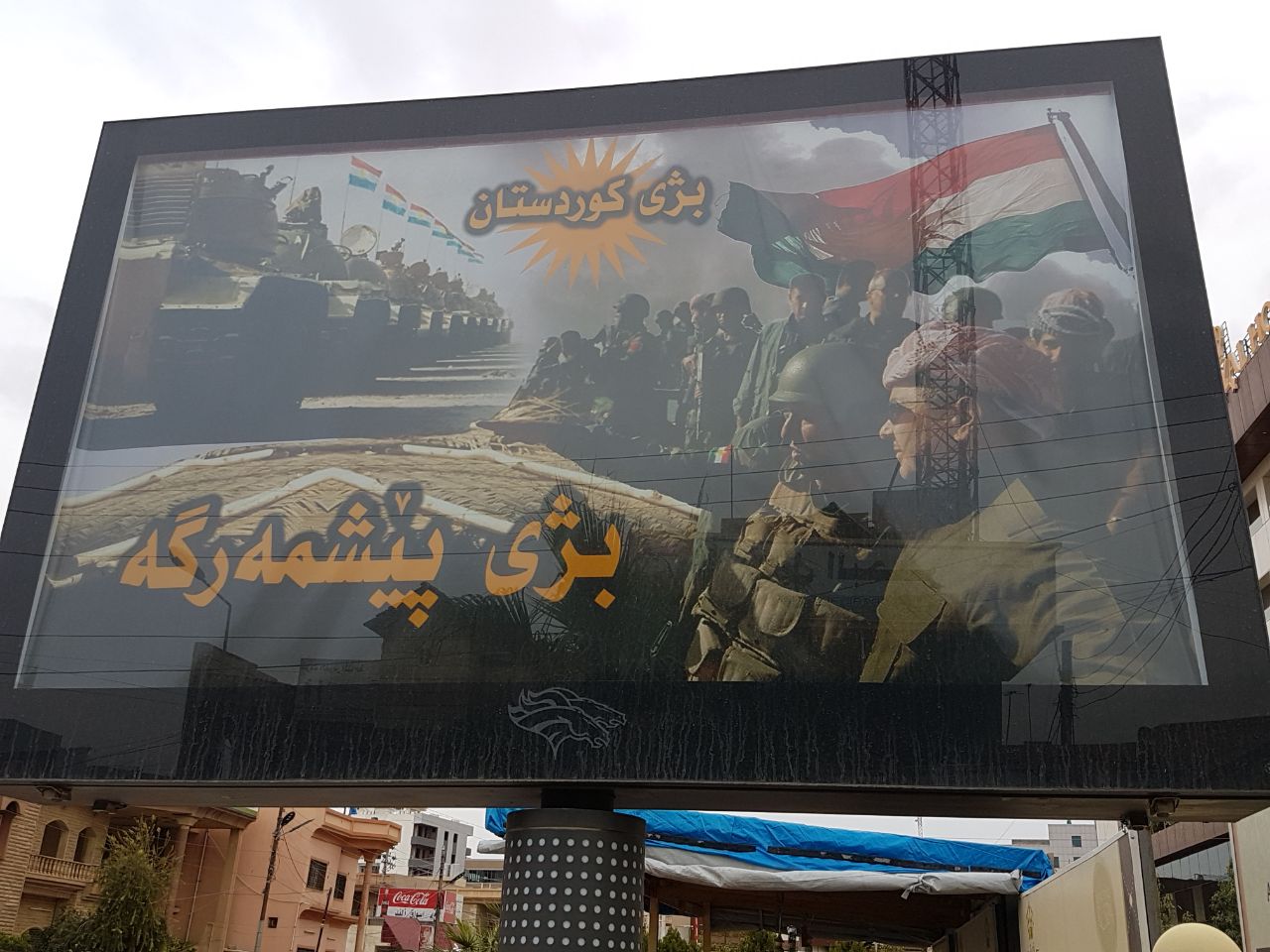
Credit : Sam Gould/ YoungDiplomats
As of late, this autonomous region is campaigning for an internationally recognized referendum for complete sovereignty and independence over their rightful territory. This comes with stark opposition from the central government in Baghdad and with that, little international support and fear from other states with large Kurdish populations. It’s curious that the world is so reluctant to support the breakup of a failed state and not the creation of a friendly and democratic one.
This may be a very unique time in history to formally create an independent Kurdistan(s). As Iraq and Syria can surely be classified as failed states, the Kurdish regions within the recognized borders of those states many be witnessing an opportune period of time for such a cause. The autonomous Kurdish region as of this point in time has little international support for a referendum deciding the region’s outcome and most believe that the world will not recognize the results, except for a select few – based on polls, the outcome of that referendum would be overwhelmingly in favour of Kurdish independent from the Republic of Iraq.
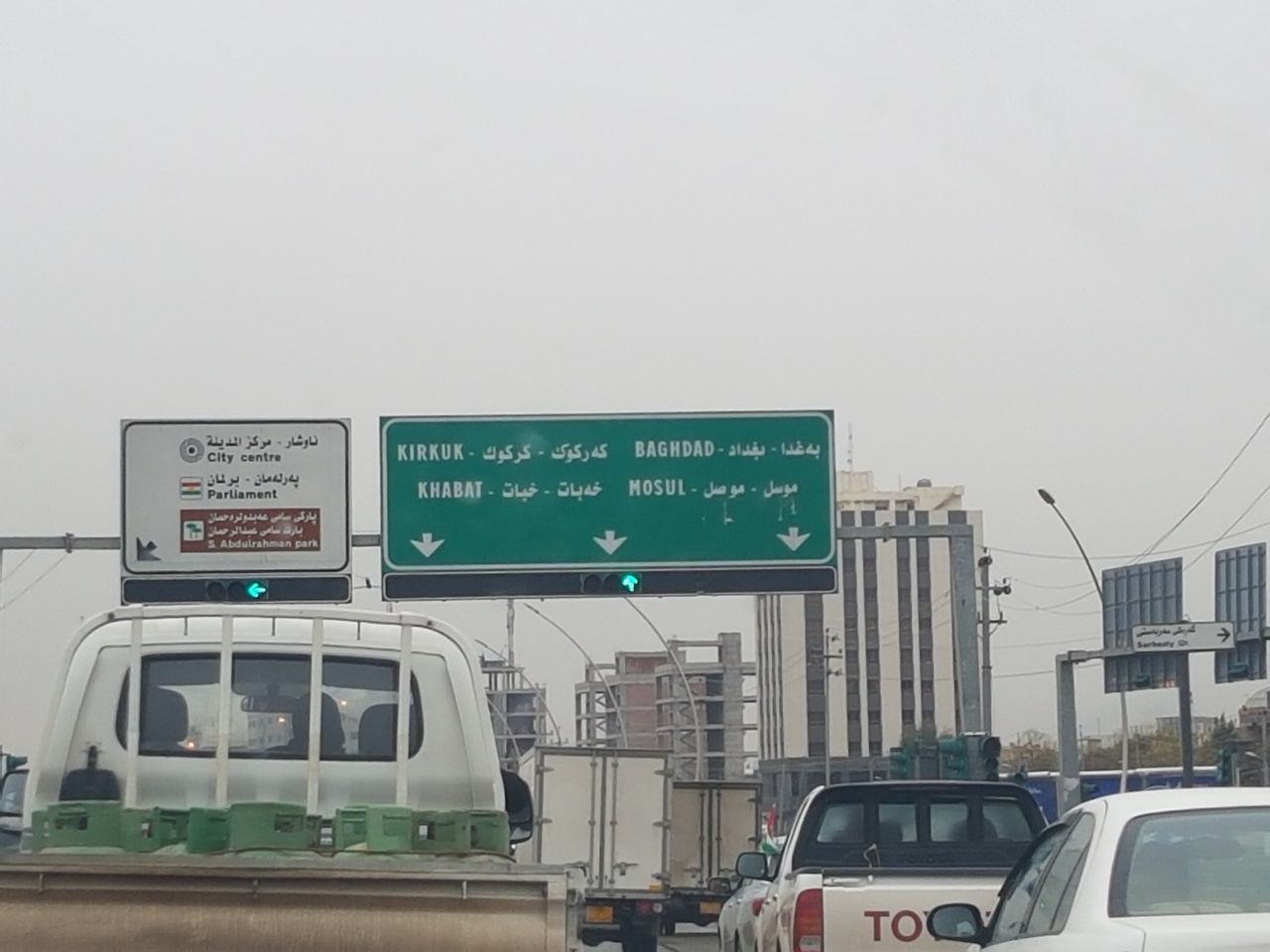
Credit : Sam Gould/Young Diplomats
One should stress that the Kurdish Regional Government (KRG) is a government which promotes peace, democracy, tolerance, respect for human rights, and freedoms. These are ideals and values that are by no means respected by the central Iraqi government, whether or not the prestige has been held by either Sunnis or Shiites. We cannot overlook the fact that other parts of Kurdistan lie inside the borders of two very problematic countries in terms of international relations, for European and North American countries – Turkey and Iran. For the international community to openly promote independence in one area, which may spark reactions in others, may prove quite problematic. This is of course being when the only reward for the world is a new independent state in the region. We should be as blunt as possible when discussing the issue of Kurdish independence and maybe we can come to more conclusive answers – the world really does not care about an independent Kurdistan, sadly.
Going back to this issue of Middle Eastern geo-politics, Turkey and Iran pose very big problems to the idea of an independent Kurdistan in the territory of Iraq unless their own territories with large Kurdish populations are re-assured. Turkey in particular has a very interesting position in Middle Eastern politics, and especially those pertaining to relations between the states in the region and western ones. Turkey being a member of NATO and a key western ally, and Iran being a regional power with close ties to both Russia, the current Shi’ite government of Iraq and the Assad regime in Syria.
Iranian regime’s little to no ideological influence over the largely Sunni, Kurdish population, both on its own soil and in the Kurdish region
Geo-political concerns in the region generally do not fall in favor of the Kurds of northern Iraq, or any other part of Kurdistan for that matter. Although, as NATO member states and Turkey drift further apart because of domestic Turkish politics and various abuses of power by both President Erdogan and his Justice and Development Party, we might very well see developments leading to greater International support for Kurdish independence, as less importance is given to Turkish policy. To continue on that line, a possible future change in relations with Russia, and the outcome of the war in Syria might alter dynamics with Iran which may have an effect on its policy towards (Iraqi) Kurdistan after the fall of the ‘Islamic State (IS).’ If Assad and the Alawites completely lose control of Syria to Sunni factions, it might allow for change in the Iranian position on Kurdish independence in both Rojava and northern Iraq.

Credit : Sam Gould/ Young Diplomats
We cannot disregard Middle Eastern sectarianism and its effect on geo-politics in the region. Taking into account as well the Iranian regime’s little to no ideological influence over the largely Sunni, Kurdish population, both on its own soil and in the Kurdish region. The issue of Kirkuk and who will control it in the future and the oil fields that come with it has become a sore issue for various groups living within the area, and their regional counterparts including Kurds, Sunnis, Shi’ites’ and Turkmen. Even though the majority of its inhabitants are ethnic Kurds. From experience, this includes the Iraqi military personnel manning the checkpoints shortly after the area was liberated from the ‘Islamic State’ were ethnic Kurds themselves. The imminent fall of the ‘Islamic State’ will surely unite the Kurds of Iraq around the flag and the Peshmerga, their army who has become a major, if not the main catalyst in Iraq’s seemingly successful war to regain its territory. At such a point in time, its hard to imagine how the international community could deny the Kurdish right for a sovereign state after all the sacrifices the Kurdish military, government and people have made.
Upon arrival in Erbil international airport, one of the oldest continually inhabited cities in the world, most nationalities are greeted with a ‘visa on arrival’ for the Republic of Iraq by Kurdish officials. It should be noted that the region also has its own visa policy. The visa on arrival given is only for entrance into the Kurdish region and does not give access into the rest of Iraq. Interestingly enough, the airport security procedures in the nation’s capital are strikingly similar to those of another tiny nation state in the Middle East, a state in which Iraq has not official diplomatic relations with. In fact it’s the only part of Iraq that citizens of that small country are allowed to visit, unofficially anyways.
Islamic State was and is actively trying to disrupt this harmony from only about forty kilometres away
The city of Erbil is the capital of Iraqi Kurdistan. A city with pockets of religious minorities who are free to practice their own religion and customs as they please, including community holidays and the consumption of alcohol. Within a short period of time, one can go from seeing prayers inside of a mosque, to the local bar or dance club in the majority Christian neighbourhood of Ainkawa. Seemingly tolerant life goes on as usual in the country’s capital without thinking twice that the Islamic State was and is actively trying to disrupt this harmony from only about forty kilometres away, unsuccessfully of course.
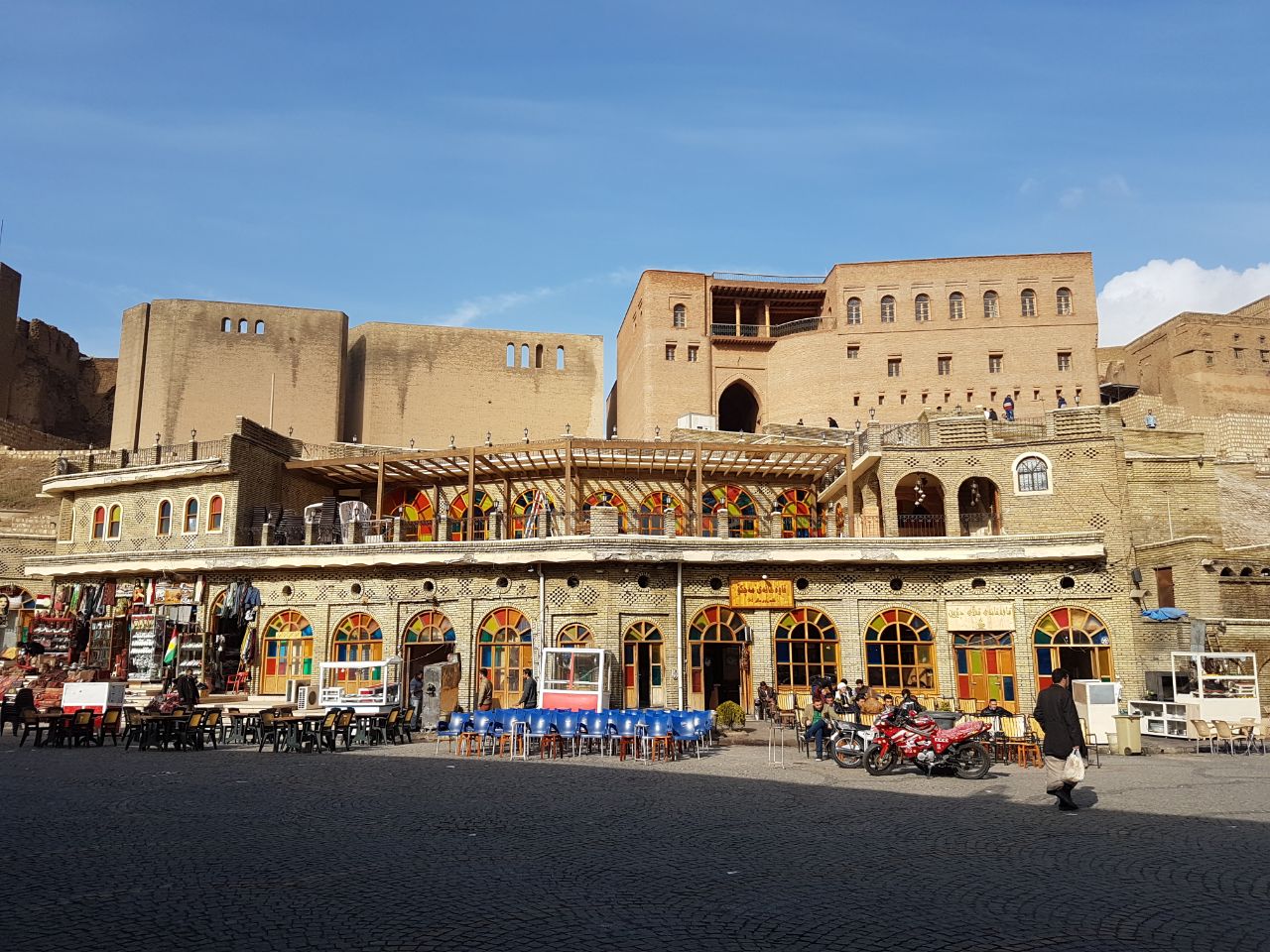
Without spending a lot of time in the country, one immediately notices the mass amounts of Kurdish flags, the use of the Kurdish language and widespread images of support for the local Kurdish army. All of this is in contrast to the rest of Iraq which of course speaks Arabic, uses the Iraqi national flag and supports the Iraqi army.
Sulemaniyah, unofficially called ‘the most liberal city in Iraq’
Although internationally defined as one country, one can easily understand that it’s definitely not, even in its present situation as an autonomous region. The situation in Iraq could be described as the Middle Eastern version of the Chinese ‘one state, two systems’ policy. In both cases, the real facts point to no such thing as ‘one state, two systems.’ It may be better described as internationally supported political and economic interference on an aspiring democratic country.
Life in the capital is not necessarily a representation of life outside however. Although life seems normal and prosperous enough in Erbil, there does seem to be poverty in other parts of the autonomous region as a result of poor economic conditions. The country is in a state of war and lots of resources are needed to protect their freedom. From the capital of Erbil to Sulemaniyah, unofficially called ‘the most liberal city in Iraq’, one encounters a few hour drive through the beautiful scenery of the region and countless checkpoints manned by members of the Peshmerga (military) or the local Kurdish police.
With that said, it would be a lie to say that while going through these checkpoints I felt uneasy in any way like one might think. Unlike many armies in this part of the world, the Peshmerga is a trustworthy, respectful, western oriented and professional military force which does an exceptional job of protecting its borders and life within those borders. The checkpoints the army and police forces have set up are only to ensure the safety of its citizens and large amounts of refugees which the region has taken in from its Iraqi neighbours. Yes, as a foreigner travelling between these two cities, they were curious to know if the purpose of my trip to Kurdistan was to fight with Kurdish forces in Rojava (Syrian Kurdistan), which is illegal by law of the Kurdish Regional Government (Iraqi Kurdistan) and obviously was not the case.
The entrance into Sulemaniyah is a spectacular one. The sight of the mountains separating the Kurdish region in Iraq to its counterpart in Iran is breathtaking. The city seems like any normal functioning city in the world, with lots to do at all hours of the day and night, as I would later find out. Whether it’s shopping malls, restaurants, historical sights, or bars and American style alcohol shops, the city is filled with life and culture that most would not expect. Unlike what most may think, both of these Kurdish cities are completely safe, even late into the night.
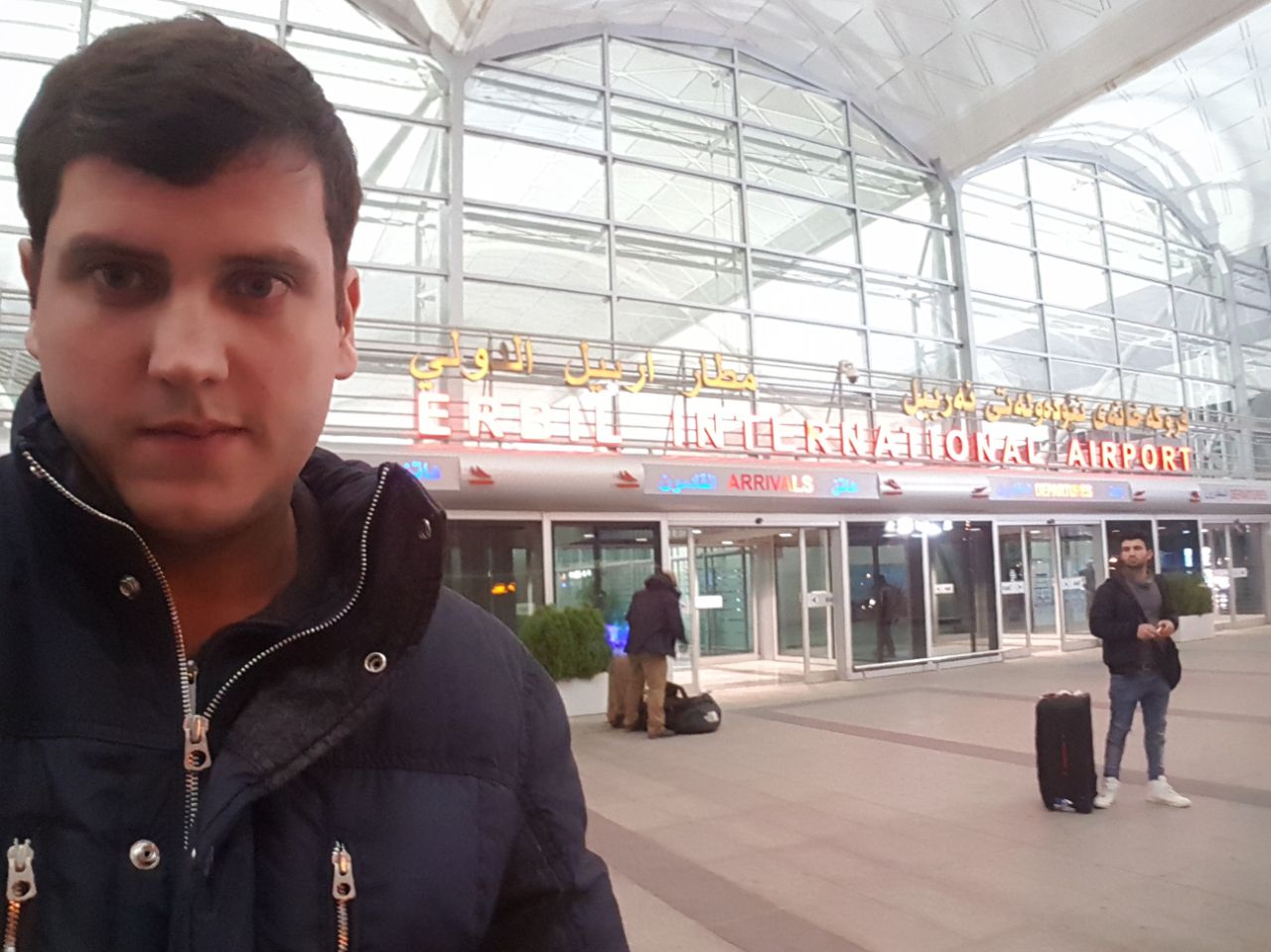
The airport in Erbil may be one of the most secure airports I have ever seen. Equipped with various different levels of security before even entering the airport itself, the Kurdish security services have created a situation where citizens and tourists alike can fly to and from their region safely, even with a war raging less than an hour’s drive away. With the imminent end of that war, the world may be witnessing the start of a new one, Kurdistan’s war of independence – not to say that this will be a violent one. With that said however, we may be looking at the Middle East’s newest country in the near future, which will only have a positive impact on the region.
With only a carry-on bag, most of the souvenirs I would have liked to bring back were sadly forbidden. As I went through security I was asked politely to open my bag. I Immediately realized that the issue is most probably a piece of stone that I had in my bag. They informed me that I would not be allowed to take it with me onto the flight as assumingly it could be used as a weapon. Once I explained to them that this piece of stone was in fact the base of a beautiful Kurdish flag that I had purchased during my trip, of course they allowed me to board my flight, with my Kurdish flag and its stone base.
